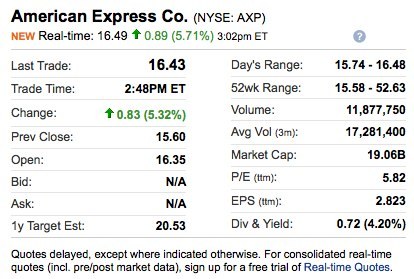Table of ContentsAn Unbiased View of What Is Derivative FinanceWhat Is Derivative In Finance for DummiesThe Best Guide To What Is Derivative Market In FinanceSome Known Questions About Finance What Is A Derivative.
However, if a stock's price is above the strike price at expiration, the put will be worthless and the sellerthe choice writergets to keep the premium as the choice ends. If the stock's rate is below the strike rate at expiration, the call will be worthless and the call seller will keep the premium.
These are called American-style options, but their usage and early exercise are rare. As the above examples illustrate, derivatives can be a helpful tool for organisations and financiers alike. They provide a way to secure rates, hedge versus undesirable movements in rates, and alleviate risksoften for a limited expense.
On the downside, derivatives are difficult to worth because they are based on the cost of another asset. The risks for OTC derivatives consist of counter-party dangers that are difficult to forecast or worth too. what is a derivative in finance examples. Most derivatives are likewise sensitive to modifications in the amount of time to expiration, the expense of holding the hidden possession, and rates of interest.
Pros Lock in rates Hedge versus danger Can be leveraged Diversify portfolio Cons Difficult to value Topic to counterparty default (if OTC) Complex to understand Delicate to supply and require elements Likewise, considering that the acquired itself has no intrinsic valueits value comes only from the underlying assetit is susceptible to market sentiment and market threat - what is a derivative in.com finance.
Lastly, derivatives are generally leveraged instruments, and using utilize cuts both methods. While it can increase the rate of return it likewise makes losses install faster. Many derivative instruments are leveraged. That means a percentage of capital is required to have an interest in a big quantity of value in the hidden asset.
Financial instrument In finance, a derivative is an agreement that derives its worth from the efficiency of an underlying entity. This underlying entity can be an property, index, or interest rate, and is frequently merely called the "underlying". Derivatives can be used for a variety of functions, consisting of insuring versus price motions (hedging), increasing exposure to cost movements for speculation or getting access to otherwise hard-to-trade possessions or markets.
Get This Report on What Do You Learn In A Finance Derivative Class
Most derivatives are traded over-the-counter (off-exchange) or on an exchange such as the Chicago Mercantile Exchange, while a lot of insurance coverage contracts have actually become a separate market. In the United States, after the financial crisis of 20072009, there has actually been increased pressure to move derivatives to trade on exchanges. Derivatives are among the three primary classifications of financial instruments, the other two being equity (i.e., stocks or shares) and financial obligation (i.e., bonds and home mortgages).
Container shops, outlawed in 1936, are a more recent historic example. Derivatives are agreements between two parties that define conditions (particularly the dates, resulting values and meanings of the underlying variables, the celebrations' contractual responsibilities, and the notional quantity) under which payments are to be made between the celebrations. The assets include products, stocks, bonds, rate of interest and currencies, however they can also be other derivatives, which includes another layer of intricacy to proper appraisal.
From the financial viewpoint, financial derivatives are cash streams that are conditioned stochastically and marked down to present worth. The market threat inherent in the underlying property is connected to the financial derivative through contractual agreements and hence can be traded independently. The hidden asset does not need to be gotten.

This likewise provides a substantial quantity of liberty concerning the agreement design. That legal flexibility allows derivative designers to modify the participation in the efficiency of the underlying possession almost arbitrarily. Therefore, the involvement in the market value of the underlying can be efficiently weaker, stronger (take advantage of effect), or implemented as inverse.

There are two groups of acquired agreements: the independently traded non-prescription (OTC) derivatives such as swaps that do not go through an exchange or other intermediary, and exchange-traded derivatives (ETD) that are traded through specialized derivatives exchanges or other exchanges Continue reading - what is derivative in finance. Derivatives are more typical in the modern era, however their origins trace back a number of centuries.
Derivatives are broadly categorized by the relationship between the underlying property and the derivative (such as forward, option, swap); the kind of underlying possession (such as equity derivatives, foreign exchange derivatives, rates of interest derivatives, product derivatives, or credit derivatives); the market in which they trade (such as exchange-traded or over the counter); and their pay-off profile.
The smart Trick of What Are Derivative Instruments In Finance That Nobody is Discussing
Lock products (such as swaps, futures, or forwards) obligate the legal parties to the terms over the life of the contract. Option products (such as rates of interest swaps) offer the purchaser the right, however not the obligation to go into the contract under the terms specified. Derivatives can be used either for threat management (i.e.
making a financial "wager"). This difference is essential due to the fact that the previous is a sensible element of operations and monetary management for lots of firms across many industries; the latter offers supervisors and financiers a dangerous opportunity to increase earnings, which might not be correctly revealed to stakeholders. In addition to lots of other financial services and products, derivatives reform is an element of the DoddFrank Wall Street Reform and Customer Defense Act of 2010.
To give an idea of the size of the acquired market, has actually reported that since June 2011, the non-prescription (OTC) derivatives market totaled up to around $700 trillion, and the size of the marketplace traded on exchanges amounted to an additional $83 trillion. For the fourth quarter 2017 the European Securities Market Authority estimated the size of European derivatives market at a size of 660 trillion with 74 million impressive contracts.
For instance, in 2010, while the aggregate of OTC derivatives surpassed $600 trillion, the value of the marketplace was http://edgarglca602.lowescouponn.com/some-known-factual-statements-about-how-to-make-money-online-with-finance-background estimated to be much lower, at $21 trillion. The credit-risk equivalent of the acquired contracts was estimated at $3.3 trillion. Still, even these scaled-down figures represent big quantities of money. For perspective, the budget plan for total expense of the United States government throughout 2012 was $3.5 trillion, and the overall existing worth of the U.S.
On the other hand, the world annual Gross Domestic Product has to do with $65 trillion. At least for one kind of derivative, Credit Default Swaps (CDS), for which the fundamental risk is considered high [], the higher, nominal value stays pertinent. It was this kind of derivative that financial investment tycoon Warren Buffett described in his famous 2002 speech in which he alerted against "financial weapons of mass destruction".
Derivatives are used for the following: Hedge or to alleviate danger in the underlying, by entering into an acquired agreement whose value moves in the opposite instructions to their underlying position and cancels part or all of it out Produce choice ability where the worth of the derivative is connected to a specific condition or occasion (e.g., the underlying reaching a particular price level) Obtain direct exposure to the underlying where it is not possible to trade in the underlying (e.g., weather condition derivatives) Supply take advantage of (or tailoring), such that a small movement in the underlying worth can trigger a large distinction in the value of the derivative Speculate and earn a profit if the worth of the underlying possession moves the method they anticipate (e.g.
The 4-Minute Rule for What Is Derivative Market In Finance
For instance, an equity swap permits an investor to get steady payments, e.g. based upon LIBOR rate, while avoiding paying capital gains tax and keeping the stock. For arbitraging purpose, permitting a riskless revenue by simultaneously getting in into transactions into two or more markets. Lock items are More help theoretically valued at no at the time of execution and thus do not normally require an up-front exchange between the celebrations.
Importantly, either party is therefore exposed to the credit quality of its counterparty and is interested in safeguarding itself in an occasion of default. Alternative products have instant value at the beginning because they supply defined security (intrinsic worth) over an offered time duration (time value). One common kind of choice item familiar to numerous consumers is insurance coverage for houses and cars.